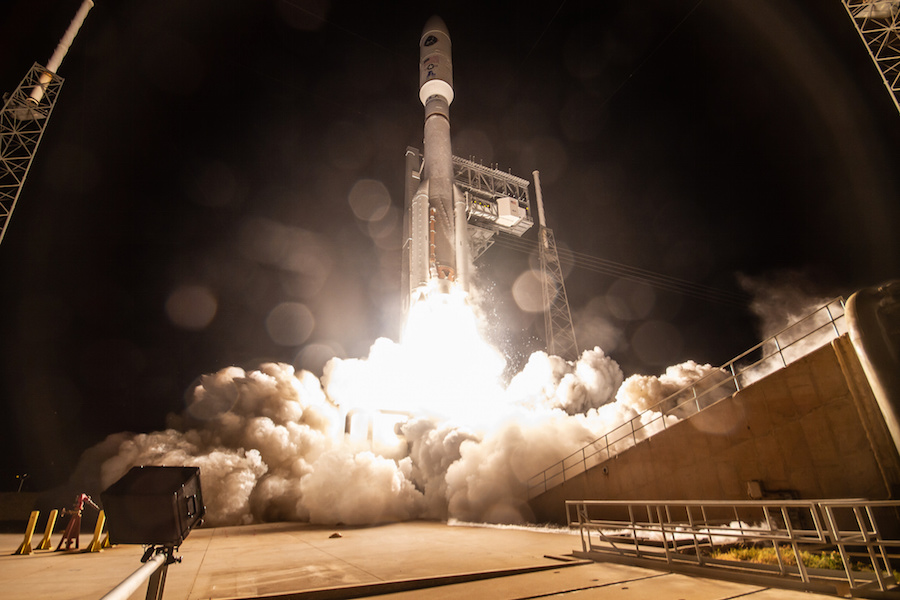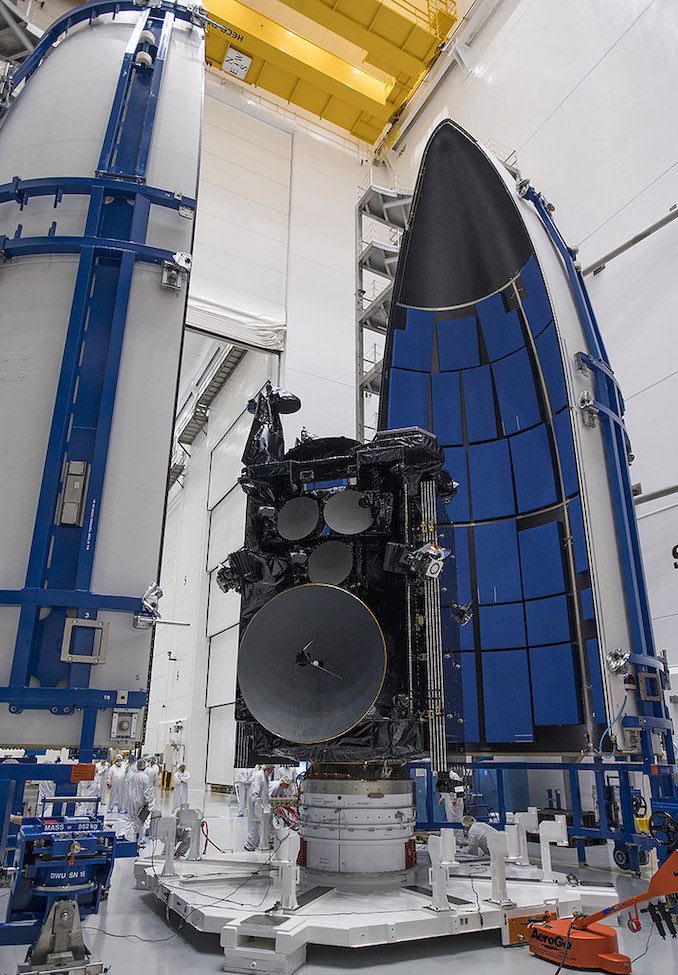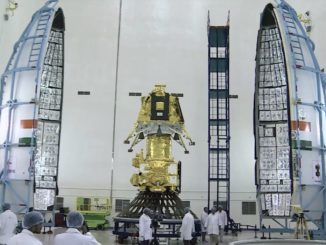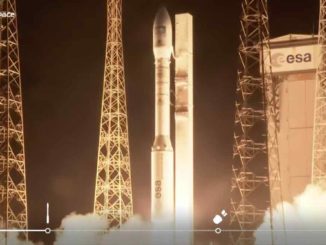
United Launch Alliance is pushing back its next Atlas 5 launch from Cape Canaveral until no earlier than Aug. 8, allowing time for engineers to ensure an unspecified anomaly during component testing at a supplier will have no impact on the Atlas 5’s mission to place a U.S. Air Force communications satellite into orbit.
ULA announced the delay Thursday, citing “an anomaly during component testing at a supplier which has created a cross-over concern.”
The Atlas 5 rocket was scheduled to lift off from Cape Canaveral next Wednesday, July 17, with the Air Force’s fifth Advanced EHF communications satellite.
“Additional time is needed for the team to review the component anomaly and determine if any corrective action is required to the launch vehicle,” ULA said in a brief statement.
United Launch Alliance did not identify which supplier or component were responsible for the delay, which follows a previous postponement from the Atlas 5’s original target launch date of June 27 in order to replace a failed battery on the rocket.
ULA also did not announce a time for a potential launch attempt Aug. 8, but a countdown on that date is expected to have a two-hour window opening at approximately 5:50 a.m. EDT (0950 GMT).

The Atlas 5 rocket is fully assembled inside the Vertical Integration Facility, or VIF, at Cape Canaveral’s Complex 41 launch pad. After the Atlas 5’s first stage arrived at the VIF in May, workers installed the rocket’s Centaur upper stage, five solid rocket boosters and the Atlas 5’s payload shroud containing the Lockheed Martin-built AEHF 5 spacecraft.
The AEHF 5 satellite’s launch comes after the launch of four previous AEHF spacecraft in 2010, 2012, 2013 and 2018, all on Atlas 5 rockets.
The U.S. military, the president and other government leaders rely on the AEHF network for secure video, voice and data communications. The AEHF satellites are hardened to operate in nuclear war and are resistant to jamming, providing reliable global links among strategic forces and commanders around-the-clock.
Military forces from Canada, the Netherlands and the United Kingdom also have access to the AEHF satellite network.
Email the author.
Follow Stephen Clark on Twitter: @StephenClark1.



